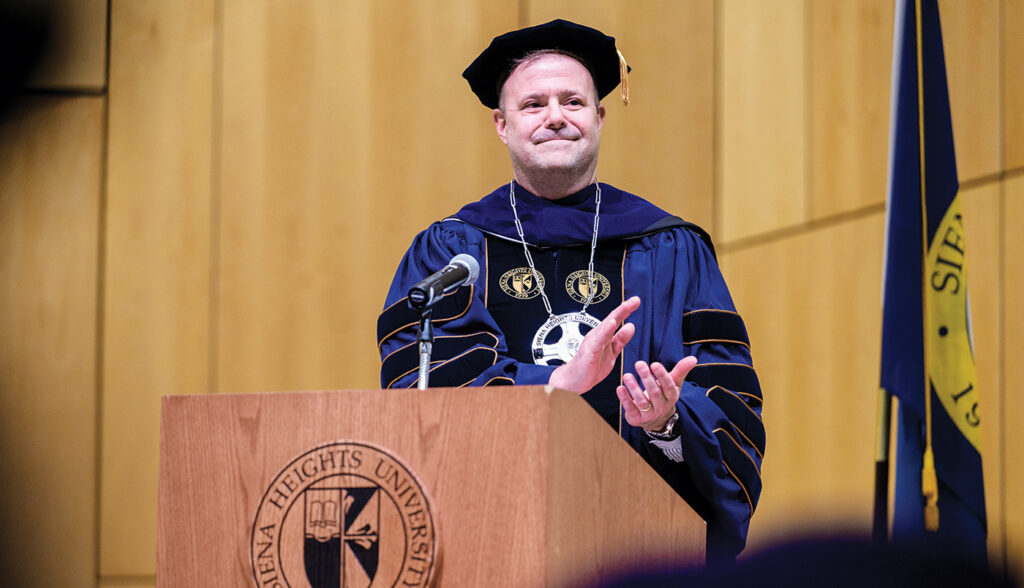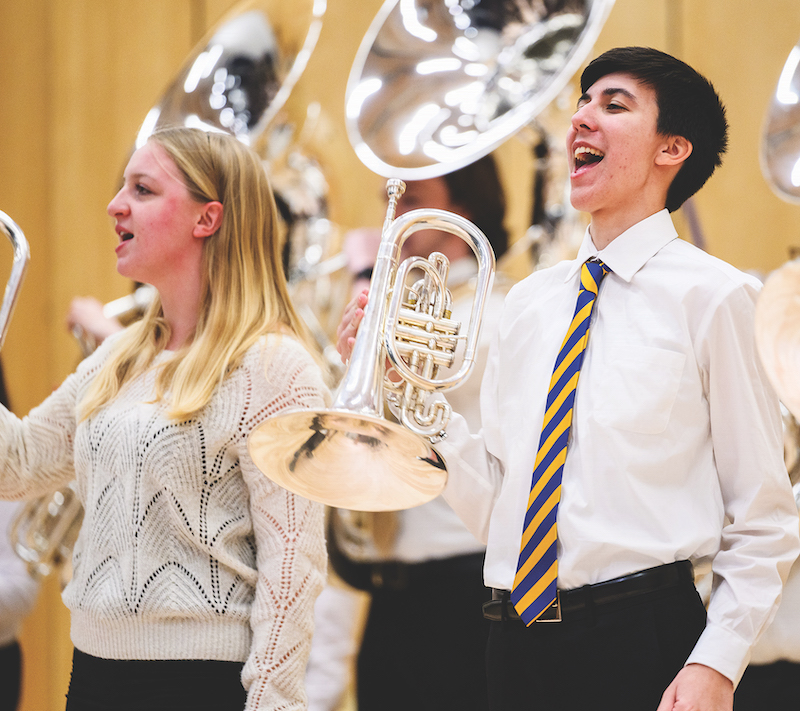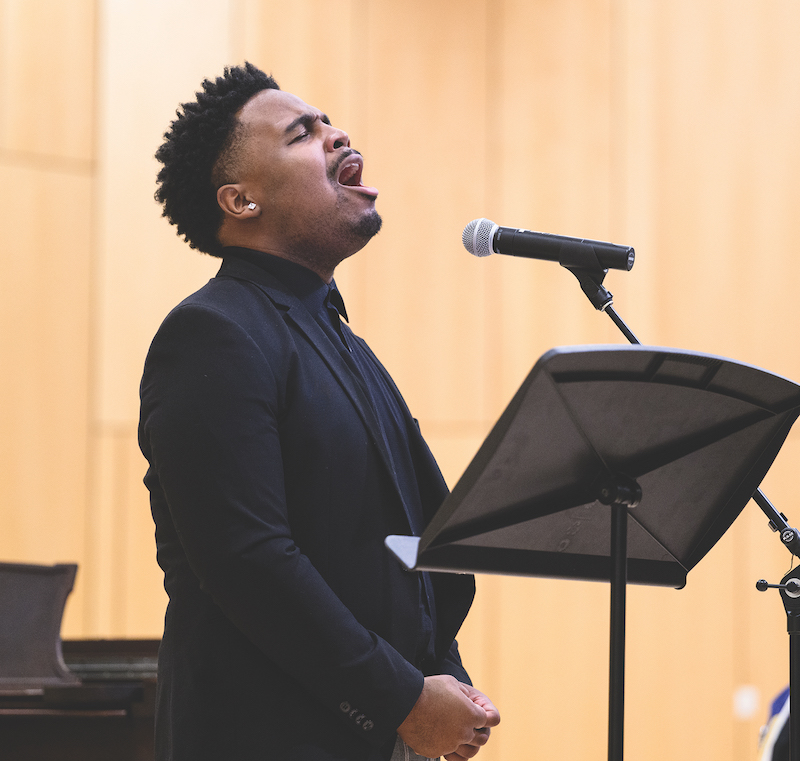
ADRIAN — Paying tribute to the school’s Catholic heritage and the intellectual traditions of the Dominican order, Douglas Palmer laid out his vision for Siena Heights University on March 15 as he was formally installed as the university’s 11th president.
The priorities Palmer listed in his inaugural address included outreach to Michigan’s Hispanic community and expanding on the university’s efforts to make college accessible for students from all economic backgrounds.
“Together, we have the opportunity to shape the future of our university and to leave a lasting legacy that will inspire generations to come,” he said.
Palmer became SHU’s president in July 2023 following the retirement of Sister Mary Margaret “Peg” Albert. He previously served as president of Culver-Stockton College in Canton, Missouri.
“At the core of our identity as an institution of higher learning lies the rich tapestry of our Dominican and Catholic intellectual traditions,” Palmer said.

Recalling St. Thomas Aquinas’ efforts to reconcile faith and reason, he said that the essence of Dominican learning is “a harmonious blend of intellectual rigor and spiritual devotion.”
“The quest for truth and understanding remains as relevant as ever,” he said. “In an age marked by skepticism, polarization and misinformation, the need for rigorous inquiry and critical thinking has never been more pressing.”
By embracing Dominican tradition, he said, “we equip ourselves to confront the complex challenges of the modern world with clarity, compassion and wisdom.”
Palmer also recalled the work of St. Catherine of Siena, from whom the university takes its name. Catherine devoted herself to serving the sick and impoverished, and to advocating for the rights of prisoners.
“Through her selfless acts of kindness and advocacy, St. Catherine embodied the teachings of Christ, emphasized the importance of compassion and solidarity with the marginalized in society,” he said.
He noted that one of the ways Siena Heights carries out St. Catherine’s legacy is by operating a program in which inmates in Michigan’s correctional system can work toward a college degree.
“There are few endeavors which better represent our commitment to education and access for all,” he said.
Palmer then turned to Siena Heights’ role in Michigan’s economy.
“The imperative to become a brain gain university for Michigan has never been more urgent,” he said. “We cannot afford to squander the talents and the potential of our students, nor can we turn a blind eye to the pressing needs of our communities. Our graduates are the most valuable resource of today’s economy, the talent by which our institutions, our government and our enterprises will grapple with solving the world’s problems.”

He cited advanced manufacturing, life sciences, renewable energy, and sustainable technology as areas where universities can help Michigan grow.
“In today’s knowledge-driven economy, the role of universities extends far beyond the confines of academia,” he said. “As engines of innovation and economic growth, universities have a pivotal role to play in cultivating a skilled workforce, equipped to thrive in the ever-changing landscape of the 21st century.”
Palmer announced that the university’s Brain Gain Promise, a newly launched program that guarantees free tuition for students from families with household incomes of less than $65,000 per year, will be expanded to cover students from anywhere in Michigan, not just Lenawee County.
“Catholic colleges and universities have always been committed to educating those for whom access to the American dream has been difficult,” he said.
Palmer also said that Catholic institutions have always “reached out to educate the sons and daughters of new arrivals to our shores.”
In the past, that often meant Italian, Irish and Polish immigrants. Today, he said, the same tradition is leading Siena Heights to work to expand opportunities for Hispanic students, and the school has started forming partnerships with organizations like the Michigan Hispanic Coalition and Michigan Hispanic Chamber of Commerce.
“By embracing diversity and fostering inclusivity, we enrich the fabric of our university community and prepare our students to thrive in an increasingly interconnected and globalized world,” he said. “When we embrace diversity, we embrace the richness of the human experience and we open ourselves up to a world of possibilities.”

